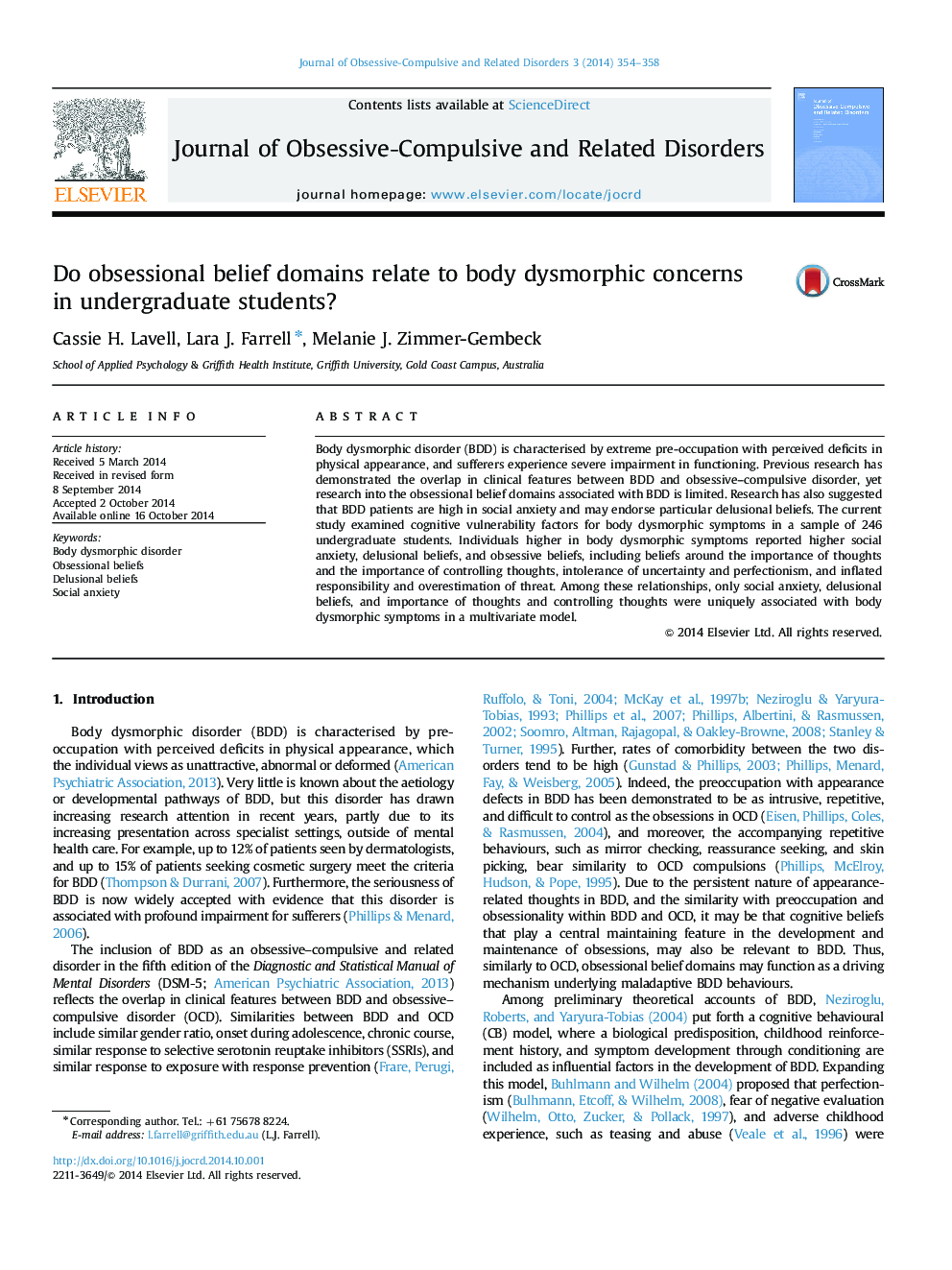| Article ID | Journal | Published Year | Pages | File Type |
|---|---|---|---|---|
| 10448939 | Journal of Obsessive-Compulsive and Related Disorders | 2014 | 5 Pages |
Abstract
Body dysmorphic disorder (BDD) is characterised by extreme pre-occupation with perceived deficits in physical appearance, and sufferers experience severe impairment in functioning. Previous research has demonstrated the overlap in clinical features between BDD and obsessive-compulsive disorder, yet research into the obsessional belief domains associated with BDD is limited. Research has also suggested that BDD patients are high in social anxiety and may endorse particular delusional beliefs. The current study examined cognitive vulnerability factors for body dysmorphic symptoms in a sample of 246 undergraduate students. Individuals higher in body dysmorphic symptoms reported higher social anxiety, delusional beliefs, and obsessive beliefs, including beliefs around the importance of thoughts and the importance of controlling thoughts, intolerance of uncertainty and perfectionism, and inflated responsibility and overestimation of threat. Among these relationships, only social anxiety, delusional beliefs, and importance of thoughts and controlling thoughts were uniquely associated with body dysmorphic symptoms in a multivariate model.
Related Topics
Health Sciences
Medicine and Dentistry
Psychiatry and Mental Health
Authors
Cassie H. Lavell, Lara J. Farrell, Melanie J. Zimmer-Gembeck,
